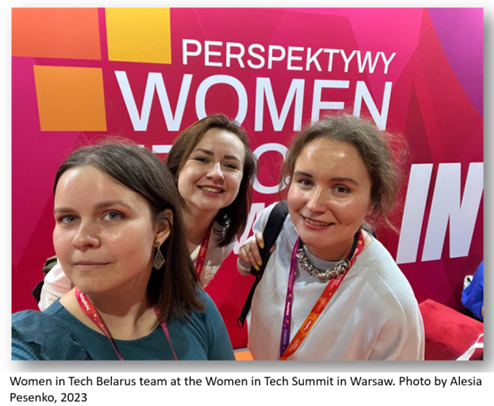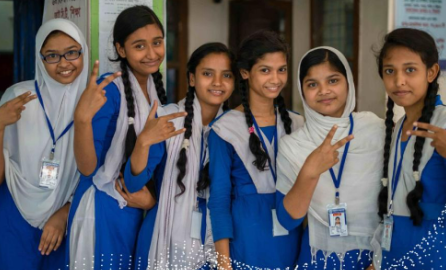Women taking over tech in Belarus
-
Gender marker: G2-Promotes gender equality as a primary objective
-
Period of implementation: 2022 - 2023
-
Amount: EUR 300,000
-
Geographical area: Eastern Partnership
-
Implementing partners: European Humanities University
-
Links to the project:
-
GAP III’s Areas:
-
Economic and social empowerment
-
Green and digital transformation
-

The tech sector is one with exciting new developments seemingly every day, incredible entrepreneurial opportunities, good salaries, and many other benefits. It’s also a sector that historically has not had a good representation of women.
Women in Tech aims to change that in Belarus. It’s fostering women’s employment in the IT sector by creating opportunities for women to start, develop and advance their careers in the field, plus contributing to a supportive and more gender-equal environment for women in IT in Belarus. The project is implemented in Vilnius, Lithuania, and reaches out to Belarusian women from within the country and those who have been forced to migrate. As such, the project is particularly sensitive to the political challenges in the region and has been successful in offering a positive way of reaching target audiences in Belarus, despite current events.
The target groups include women who have lost their jobs due to emigration; women from different cities and regions of Belarus who want to change their jobs/switch careers; and women already working in IT and who feel stuck in their career development. The European Humanities University is the implementing partner.
To tackle these issues, the project aims to create an overarching “Women in Tech” programme with several sub-components (the free educational programme “Login to Tech”, IT workshops and a Mentoring Programme).
Login to Tech, the first component to be launched, includes three months of training, 21 video lectures by IT experts on careers, opportunities and how to get into the industry, more than 50 homework assignments, tests and checklists, and personal reviews by professional recruiters. The programme has been very successful, with the organisers receiving 628 applications to take part in the first stream of the programme, and more than 1,100 women already registered for the second stream.
Other project activities include CV development support, academic programmes, conferences, research, and summer camps. The project has launched, 6 research studies on women’s barriers to IT, media and gender, problems faced by women on maternity leave, etc. These research results will help to better understand the most sensitive pain points for women in Belarusian IT. The organisers hope that at least 1,000 women will complete the full Women in Tech programme; 50-70 mentors will be trained; 120 women will complete the Mentoring programme (in the 2-year cycle); and 60% of them will find a job, get an internship or significantly change their working conditions within 6 months of completing the Mentoring programme.
Success has transformative potential, as the project will make women’s success stories more visible by raising awareness in the IT sector (i.e. companies, start-ups, etc.). There will also be conferences, a series of discussions, and communication of project events through social media. These efforts will attract attention to the challenges women experience in IT, and create a public space for discussing problems, sharing experiences and supportive networking. So, if you want to keep informed of this project, do not hesitate to have a look at the website.
“In a world where women often confront distinct obstacles, the Women in Tech programme stands as a beacon of hope and empowerment. It has not only provided me with opportunities and connections but has also instilled a renewed sense of purpose that reaches beyond the boundaries of mentorship. For Belarusian women who aspire to a tech career, this programme represents more than just a stepping stone; it's a transformative experience that I am profoundly grateful for and enthusiastically support.” Hanna Maklakova, Project Manager.
